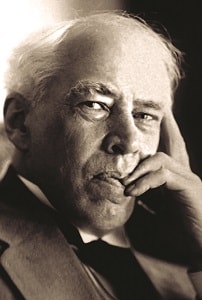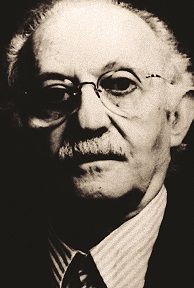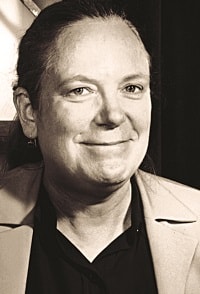If you’ve ever had to walk like a manatee or dance like a giraffe, chances are it was in acting class. Think back. Did your high school teacher, a misunderstood soul who wore all black, throw fits during tech rehearsals? Did you secretly admire your college professor even though you hated it when she insulted your posture? Maybe you went to graduate school and had a coterie of coaches, one more mystical than the next. Can you cry on command? Laugh like a hyena?
Acting techniques abound. Stanislavsky, Meisner and Adler are all part of a theatre nerd’s lexicon. But what, ultimately, do all these methodologies mean? Is any one better than another? Do successful actors employ some secret combination? Perhaps most important: How do you emerge from actor training without imitating the shaman who taught you?
Recently two groups, Rude Mechanicals of Austin and Theatre MITU, a Manhattan-based company in residence at New York Theatre Workshop, creatively delved into these questions and some related ones. Both The Method Gun, by Rude Mechs, and DRC (or How I Learned to Act in 7 Steps), by MITU, are workshop productions that at press time remained in nebulous states. Austin audiences got a first look at The Method Gun Dec. 6–15 and DRC began development in December at the Sundance Theatre Lab at White Oak, in Florida, and will get its first public presentation in New York in the fall of 2008. Though the two pieces tackle more or less the same questions, they do so using very different styles and approaches.
The Rude Mechs ensemble is shaping The Method Gun around a meta-fictional acting guru named Stella Burden. The company’s members kicked off the process by crafting faux archival documents, interviews and diary entries relating to Stella Burden’s “legacy” and her mythic acting method, known as “The Approach.”

MITU’s DRC, on the other hand, seems to employ fewer tongue-in-cheeck tactics. Against a backdrop of the early 20th-century silent film The Cabinet of Dr. Caligari (which provides a “physical score” and the etymology for the acronym DRC), the group has set out to examine the written texts of seven of history’s seminal thinkers on the subject of acting: Aristotle, Adolphe Appia, Stanislavsky, Brecht, Antonin Artaud, Jerzy Grotowski and Anne Bogart.
Why choose to examine the mechanics of acting through playmaking? Why not write an essay, like the ones in this issue, or hold a roundtable discussion (theatre people do love their roundtables!) in which people from different training backgrounds trade war stories? “Why art at all?” muses Rubén Polendo, founder and artistic director of MITU. The answer is in the company’s mission: For MITU, theatre is the tool, the medium, through which questions are posed. Acting about actor-training is a natural impulse. The examination of acting in DRC is a consciously inward investigation, Polendo admits.
Rude Mechs’s project, by contrast, was chosen in the Texas company’s customary democratic way—the members went on a retreat, discussed different ideas that interested them and then held up those questions to the lens of what makes a good play. Questions regarding truth, beauty and falling under the spell of an acting teacher fit the bill. Kirk Lynn, one of the company’s five co-producing artistic directors and playwright of The Method Gun, insists that the show isn’t so much about specific acting methodologies as it is a metaphor for methodologies in general. “In an age of competing fundamentalisms, theatre has its own figures who say, ‘This way is the right way’—and that makes The Method Gun a nice metaphor to investigate what it is about programs and methods that are so attractive to our species.” He likens acting methods to religions that manufacture systems of belief on topics that are not only intangible but ineffable.
So the question arises: In these two groups so intrigued by the ins and outs of training, just what sort of educational background do the artists have?
Rude Mechs members claim not to depend upon a singular school of thought. Most of them have MFAs in acting, and Lynn notes, “We’re fairly well trained in each other.” (The ensemble was formed 13 years ago.) The group identifies no specific methodology—at least not “beyond apologizing to one another for the mistakes and hurt feelings from the last show and trying to make adjustments on the next show,” Lynn jokes. Despite this, various institutions have courted Rude Mechs, asking its members to teach classes and workshops. Thus far they’ve demurred. “We kept going back to our own process for playmaking—or rather, our lack of a singular process that we can easily articulate,” says Lana Lesley, another artistic director. One of the collaborators’ concerns, which can be seen in their construction of Stella Burden’s individualist “legacy,” is the “institutionalized misinterpretation” of a guru’s teachings—which, as Lesley puts it, results in “a mass of acting students literally performing their training on stage (as opposed to using that training as a tool to create their performance).” She concludes, “This kind of codification also results in a disturbing singular style among students today.”
Not unlike Rude Mechs, MITU’s inception as ensemble in 1997 began with a sense of wonder over the impossible. “The initial hope was to conceive ideas [for productions] that we had no clue how to act, direct or design, knowing that this impossibility would lead us onto new ground,” Polendo says. Lately that’s changed for the group—there was a feeling among its members that they had fallen into a rut of “A + B = C”—and the hunger to challenge itself anew and create “Z” pushed MITU into making DRC. As for training, the company’s actors have a motley mix of undergraduate and masters degrees. Polendo trained as a biochemist, spent time in India studying religious ritual and later received an M.A. in non-Western theatre at Lancaster University in the U.K. and an MFA in directing from University of California–Los Angeles.

MITU has embraced pedagogy: Along with workshops, classes and intensives throughout the year at various institutions around the world (one summer intensive takes place in Bangkok), the troupe also teaches a semester and yearlong track at New York University’s Playwrights Horizons Theatre School. All of this training swirls around “Whole Theatre,” the company’s own defined philosophy, which draws from a wide variety of world rituals and performance techniques (South Asian, East Asian, Latin American and Middle Eastern, to name a few). Whole Theatre is based on seven steps (“a pure coincidence for DRC,” Polendo clarifies)—context, foundation, icon, dilation, beauty, time and impossibility. DRC’s examination of specifically Western acting methods is a departure from MITU’s usual sensibilities—though it’s hard to imagine the tenets of Whole Theatre won’t permeate the outcome.
What discoveries about acting methods have these theatremakers made? Rude
Mechs sees something of the fundamental in what the group is examining (and lampooning). “The majority of acting methodologies posit themselves as the way,” Lynn notes. (The Method is called the method, after all—as if there were only one!) “Art is a featureless landscape—at least to the extent that there is no right way. Acting methodologies are at best an attempt to plant a flag and say: This is where we are. At worst they are a way of dismissing the different influences of others.”
So is there a methodology that’s best? The problem with such a question lies in the very language with which it is posed. “The methodologies that are more tolerant of difference and more flexible are better than the autocratic ones,” Lynn reflects. “How’s that for a paradox: The methodologies that deny superiority are superior!” As for the problem of avoiding becoming the teacher who taught you, Lynn likens it to the age-old dilemma of turning into your parents: It’s inevitable. But existing in an ensemble where others understand your tics and tendencies can help keep them at bay and prevent them from becoming problematic. Plus, Lynn notes, “There are lots of teachers that one wishes one could imitate perfectly.” Polendo echoes that sentiment. “In most primary theatre traditions, particularly in Asia, one of the initial key steps is, in fact, to imitate or mimic your master. The hope is to discover your limits and weaknesses when measured up to a master.”
As with all workshop pieces, the process is one thing, the result is another. DRC will be unapologetically exploratory. What fascinates Polendo is that the seven chosen thinkers “are more interested with the human heart and its workings than they are in acting as a craft—yes, their ideas manifest in a vocabulary about acting and making art—but at the core is a study of human behavior, interaction and contradiction.”

Rude Mechs members aim for exploration as well. “Our production is really about investigating universal principles surrounding mendacity, truth versus beauty, gurus and the lengths people will go to achieve greatness,” Lesley says. Perhaps Rude Mechs’s “monologue to be burned,” created during Method Gun rehearsals, explains it best: “If you ever believed in something stupid—if you ever believed a guru who turned out to be a fraud—if you ever accepted something as true just because it was beautiful—you get another chance.”
Perhaps that second chance comes for actors in the bosom of the ensemble. What saves the actors in MITU and Rude Mechs from falling under the spells of just one method or just one teacher is the very nature of the collective in which they exist, with its built-in system of checks and balances. Being surrounded by a group of smart, inspiring, talented people is probably the best way to steer clear of “bad actor” habits and the best way to learn and grow. Working in a group that knows and understands you makes it easier to shine as an actor—and makes delving into the difficult questions of acting methodologies not only possible but rewarding too.

